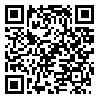Volume 7, Issue 3 (7-2022)
CJHR 2022, 7(3): 151-158 |
Back to browse issues page
Download citation:
BibTeX | RIS | EndNote | Medlars | ProCite | Reference Manager | RefWorks
Send citation to:



BibTeX | RIS | EndNote | Medlars | ProCite | Reference Manager | RefWorks
Send citation to:
Feizollahi Z, Asadzadeh H, Mousavi S R. Prediction of Symptoms of Psychosomatic Disorders in University Students Based on Perfectionism Mediated by Smartphone Addiction. CJHR 2022; 7 (3) :151-158
URL: http://cjhr.gums.ac.ir/article-1-248-en.html
URL: http://cjhr.gums.ac.ir/article-1-248-en.html
1- Department of Psychology, Science and Research Branch, Islamic Azad University, Tehran, Iran.
2- Department of Educational Psychology, School of Psychology and Education, Allameh Tabataba'i University, Tehran, Iran. ,asadzadehhsn@gmail.com
3- Education Research Institute, Department of Education, Gorgan, Iran
2- Department of Educational Psychology, School of Psychology and Education, Allameh Tabataba'i University, Tehran, Iran. ,
3- Education Research Institute, Department of Education, Gorgan, Iran
Abstract: (2021 Views)
Background: Among the main consequences of smartphone addiction are negative psychological effects, physical conditions, and psychosomatic disorders. This study aimed to investigate the relationship between perfectionism and symptoms of psychosomatic disorders mediated by smartphone addiction in university students.
Materials & Methods: The study was a descriptive correlation performed employing path analysis. The statistical population consisted of all students of the Islamic Azad University- Ahvaz Branch in the academic year 2020-2021, of whom 254 students were selected as the sample through convenience sampling. The data were collected using DSM-5 Somatic Syndrome Disorder Scale, Smartphone Addiction Scale (SAS), and Ahvaz Perfectionism Scale (APS). The evaluation of the proposed research model was performed using the path analysis method through AMOS-23.
Results: The results showed that there was a direct relationship between perfectionism and smartphone addiction (β= 0.30, P= 0.001) and also a significant relationship between smartphone addiction and symptoms of psychosomatic disorders (β= 0.28, P= 0.001) in the university students. Moreover, the relationship between perfectionism and symptoms of psychosomatic disorders was completely mediated by smartphone addiction (β= 0.22, P= 0.001).
Conclusion: According to the results, the proposed model had a good fit. Therefore, training the youth in the correct use of smartphones can reduce the effects of perfectionism on symptoms of psychosomatic disorders.
Materials & Methods: The study was a descriptive correlation performed employing path analysis. The statistical population consisted of all students of the Islamic Azad University- Ahvaz Branch in the academic year 2020-2021, of whom 254 students were selected as the sample through convenience sampling. The data were collected using DSM-5 Somatic Syndrome Disorder Scale, Smartphone Addiction Scale (SAS), and Ahvaz Perfectionism Scale (APS). The evaluation of the proposed research model was performed using the path analysis method through AMOS-23.
Results: The results showed that there was a direct relationship between perfectionism and smartphone addiction (β= 0.30, P= 0.001) and also a significant relationship between smartphone addiction and symptoms of psychosomatic disorders (β= 0.28, P= 0.001) in the university students. Moreover, the relationship between perfectionism and symptoms of psychosomatic disorders was completely mediated by smartphone addiction (β= 0.22, P= 0.001).
Conclusion: According to the results, the proposed model had a good fit. Therefore, training the youth in the correct use of smartphones can reduce the effects of perfectionism on symptoms of psychosomatic disorders.
Article Type: Original Contributions |
Subject:
Health Management
Received: 2022/02/12 | Accepted: 2022/06/14 | Published: 2022/07/1
Received: 2022/02/12 | Accepted: 2022/06/14 | Published: 2022/07/1
Send email to the article author
| Rights and permissions | |
 |
This work is licensed under a Creative Commons Attribution-NonCommercial 4.0 International License. |









